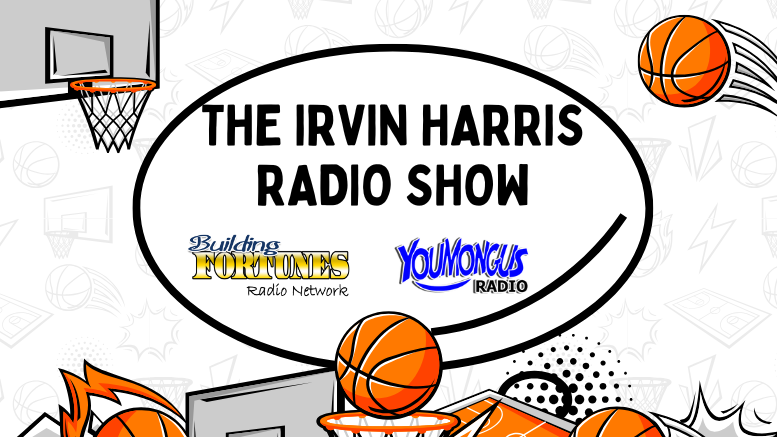Coach Irvin Harris and Basketball Coach News Radio Show with Peter Mingils talk with Michael Mason on the business of basketball preparation.
Mel Jones, Greg “Budo” Carradine, and Pee Wee Harrison will be listening in to catch up on a really significant conversation.
Discover Busche Academy: A Premier Private School in Chester, NH
Nestled in the serene town of Chester, New Hampshire, Busche Academy stands as a beacon of academic excellence and holistic development for students in grades 6-12. As a private, coeducational boarding and day school, Busche Academy offers a transformative educational experience on its expansive 70-acre campus, fostering a diverse, inclusive community where students from the United States and abroad thrive.
At Busche Academy, the mission is clear: to empower students to become lifelong learners and global leaders. The school’s unique approach integrates rigorous academics with robust athletic and volunteer opportunities, ensuring students grow intellectually, physically, and socially. Through partnerships with schools and organizations worldwide, students gain access to international academic exchanges, athletic competitions, and community service initiatives, enriching their perspectives and preparing them for a globalized world.
The academic program at Busche Academy is designed to challenge and inspire. With small class sizes and dedicated faculty, students receive personalized attention, including tutoring and office hours to support their success. The school’s college counseling services are exceptional, guiding students through the university application process to secure their future at top institutions. One senior shared, “I came to the USA without speaking any English, and now I’m confident in my abilities to succeed in a university setting, thanks to Busche Academy’s support.”
Beyond academics, Busche Academy excels in athletics, particularly basketball, with its boys’ team gaining recognition for producing talents like 6’7” rising star Abu Riak. The school’s state-of-the-art facilities and experienced coaching staff, including Coach KB, create an environment where student-athletes can shine.
The campus, formerly Chester College, offers a true college-style living experience with dormitories housing one to two students per room, complete with high-quality wooden furniture and live-in adult staff for safety and support. Financial aid and scholarships, generously supported by founders and partners, make this world-class education accessible to a diverse student body, with admissions open to all, regardless of race, religion, or background.
Located just 12 miles from Manchester and 48 miles from Boston, Busche Academy is easily accessible by air, bus, or car, making it a convenient choice for both local and international families. Ready to explore this vibrant community? Contact Busche Academy at info@buscheacademy.org or visit www.buscheacademy.org to arrange a campus tour and experience firsthand why it’s a top choice for private education in New Hampshire.
During the radio show, we speak about the recent NCAA and Conferences to Pay Student-Athlete lawsuit.
A Landmark Shift in College Sports: NCAA and Conferences to Pay Student-Athletes Billions in Historic Settlement
In a groundbreaking development that dismantles the long-standing amateurism model in college athletics, a federal court has granted final approval to a historic settlement in the House v. NCAA antitrust case. This landmark agreement will result in the NCAA and its Power Five conferences paying nearly $2.8 billion in back damages to former and current student-athletes and establishes a framework for future revenue-sharing with athletes.
The settlement, approved by Senior Judge Claudia Wilken of the Northern District of California, resolves a class-action lawsuit filed by former and current college athletes who argued that the NCAA and its member institutions illegally restricted their ability to earn compensation for their name, image, and likeness (NIL).
Key Terms of the Settlement:
- Back Pay for Past Athletes: The NCAA and the Power Five conferences (Atlantic Coast Conference, Big Ten, Big 12, Pac-12, and Southeastern Conference) will pay approximately $2.77 billion over a 10-year period to a class of Division I athletes who competed from 2016 to 2024. The distribution of these funds will be determined by a formula that takes into account the sport, years of participation, and the athlete’s likeness value.
- Future Revenue Sharing: Beginning in the 2025-26 academic year, individual universities will be permitted to share a portion of their athletic department revenue directly with their student-athletes. Each institution that opts in will have a cap on the amount they can share, initially estimated to be around $20 million per year. This figure is expected to grow as revenue from media rights and other sources increases.
- New NIL Regulations: The settlement also establishes a new system for regulating NIL deals. A new entity will be created to provide a “clearinghouse” for NIL agreements, aiming to ensure they represent fair market value and are not simply “pay-for-play” inducements.
- Roster and Scholarship Changes: The agreement will move away from traditional scholarship limits for each sport and instead implement roster size limits. This change will provide universities with more flexibility in how they allocate financial aid to their athletes.
A New Era for College Athletics:
This settlement marks a seismic shift in the landscape of college sports, effectively ending the NCAA’s strict adherence to the principle of amateurism. Proponents of the agreement argue that it is a necessary step toward fairness for student-athletes who generate billions of dollars in revenue for their institutions.
NCAA President Charlie Baker has acknowledged the transformative nature of the settlement, stating that it provides a “road map” for the future of college sports. However, the long-term implications are still unfolding.
Future Challenges and Unanswered Questions:
Despite the landmark nature of the settlement, several questions and potential challenges remain:
- Title IX Compliance: Universities will face the complex task of ensuring that their revenue-sharing plans comply with Title IX, the federal law that prohibits sex-based discrimination in education. How revenue is distributed between men’s and women’s sports will be a critical issue.
- Competitive Imbalance: There are concerns that the revenue-sharing model could exacerbate the competitive gap between the wealthiest athletic departments and those with fewer resources.
- The Definition of “Employee”: The settlement does not resolve the ongoing legal debate about whether student-athletes should be classified as employees of their universities, a question with significant labor law implications.
- Future Litigation: While this settlement resolves the House case, the door remains open for future legal challenges on various fronts, including the specifics of the revenue-sharing caps and the new NIL regulations.
The House v. NCAA settlement represents a pivotal moment in the history of college sports. As the new system of athlete compensation takes shape, its full impact on the games, the athletes, and the universities will be closely watched by all stakeholders.



